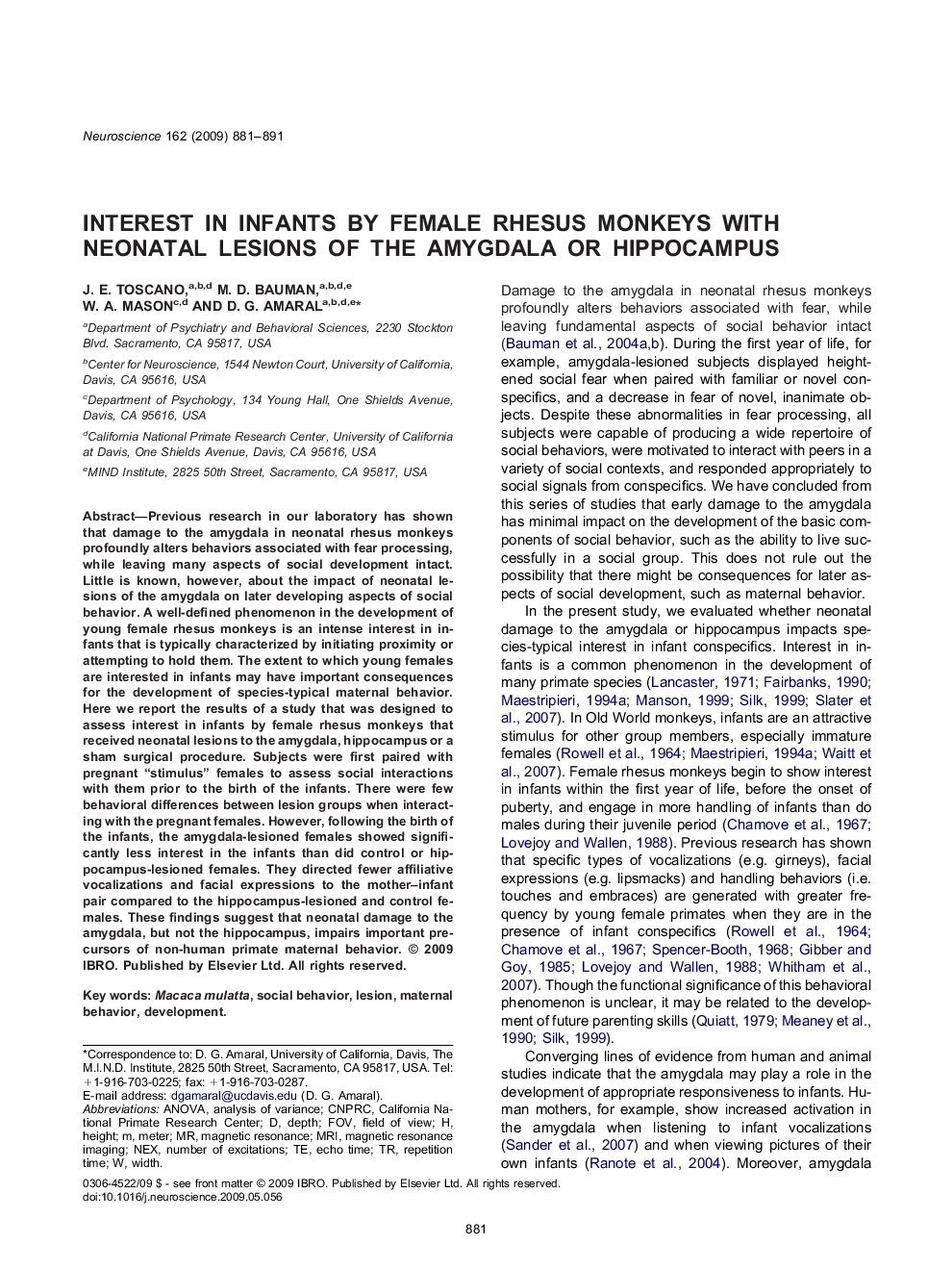| Article ID | Journal | Published Year | Pages | File Type |
|---|---|---|---|---|
| 4340211 | Neuroscience | 2009 | 11 Pages |
Abstract
Previous research in our laboratory has shown that damage to the amygdala in neonatal rhesus monkeys profoundly alters behaviors associated with fear processing, while leaving many aspects of social development intact. Little is known, however, about the impact of neonatal lesions of the amygdala on later developing aspects of social behavior. A well-defined phenomenon in the development of young female rhesus monkeys is an intense interest in infants that is typically characterized by initiating proximity or attempting to hold them. The extent to which young females are interested in infants may have important consequences for the development of species-typical maternal behavior. Here we report the results of a study that was designed to assess interest in infants by female rhesus monkeys that received neonatal lesions to the amygdala, hippocampus or a sham surgical procedure. Subjects were first paired with pregnant “stimulus” females to assess social interactions with them prior to the birth of the infants. There were few behavioral differences between lesion groups when interacting with the pregnant females. However, following the birth of the infants, the amygdala-lesioned females showed significantly less interest in the infants than did control or hippocampus-lesioned females. They directed fewer affiliative vocalizations and facial expressions to the mother-infant pair compared to the hippocampus-lesioned and control females. These findings suggest that neonatal damage to the amygdala, but not the hippocampus, impairs important precursors of non-human primate maternal behavior.
Keywords
Related Topics
Life Sciences
Neuroscience
Neuroscience (General)
Authors
J.E. Toscano, M.D. Bauman, W.A. Mason, D.G. Amaral,
